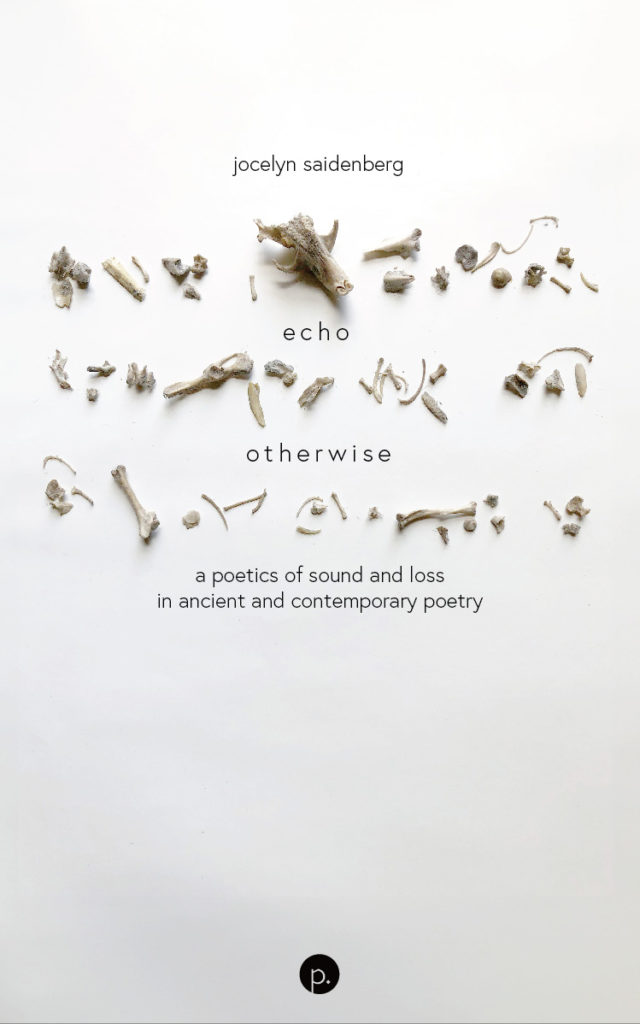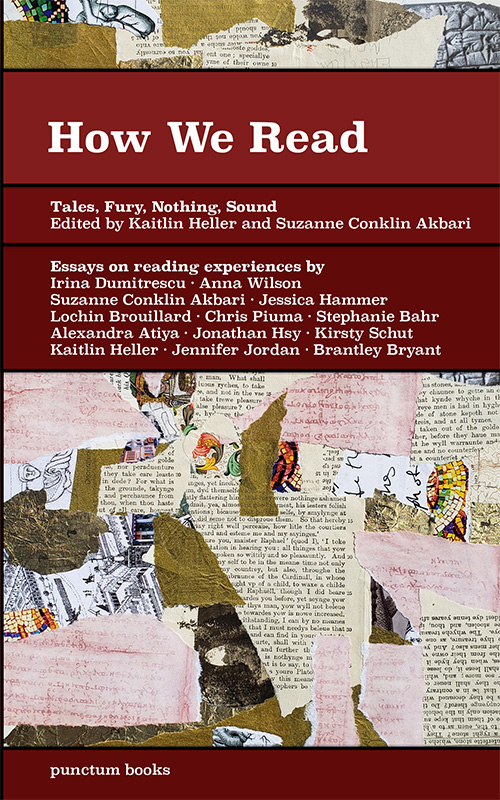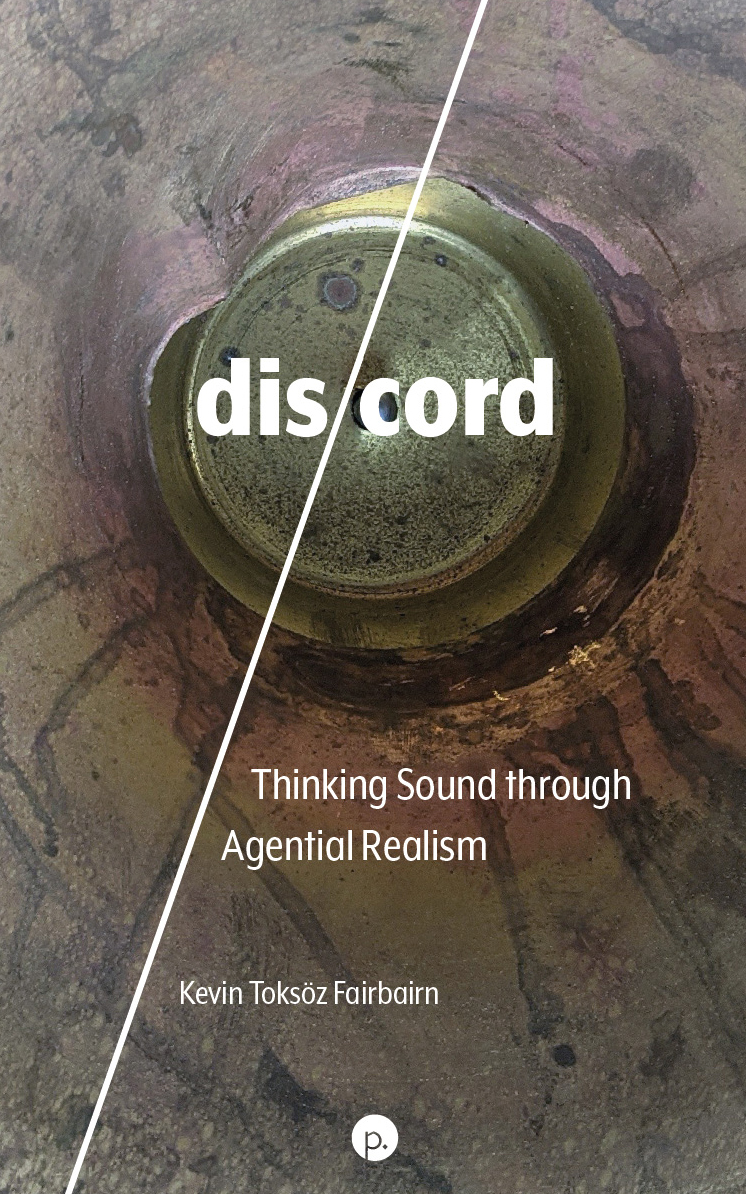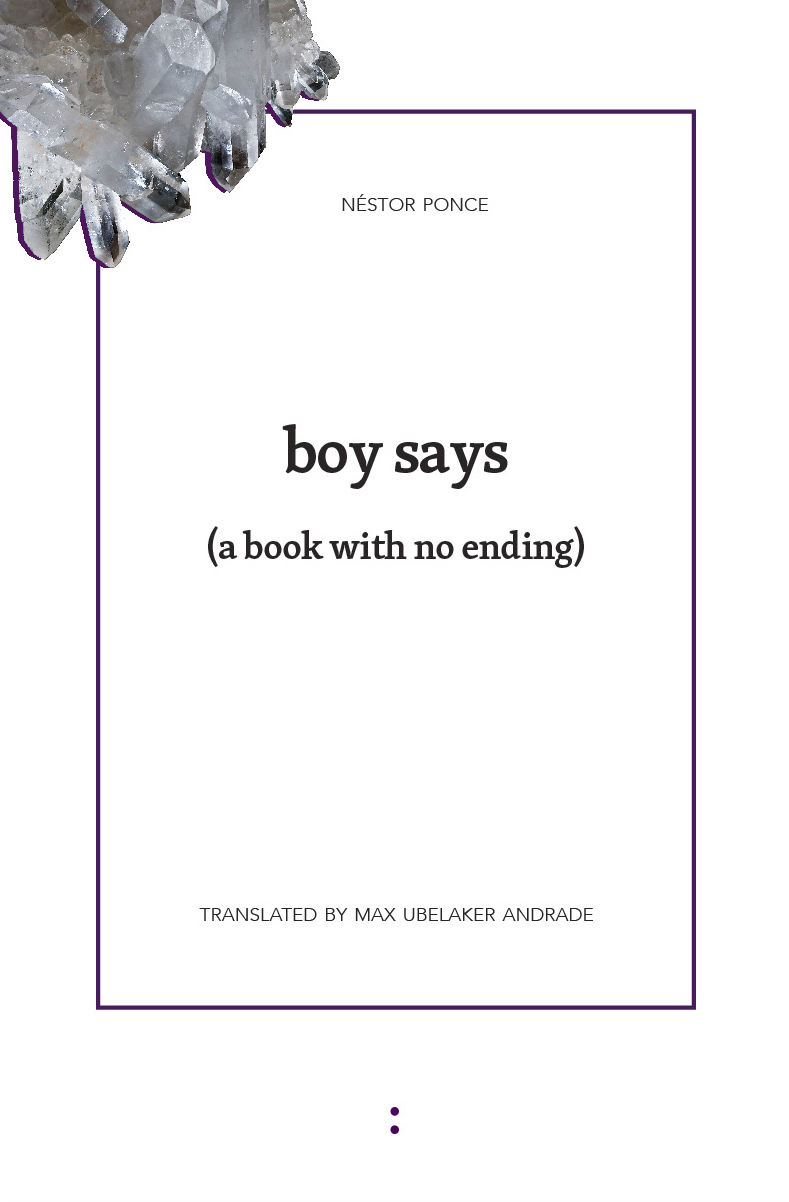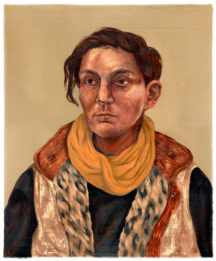At the heart of this book is a story about reading, about reading and pedagogy, about pedagogy’s readers, about readers who listen, listening while reading, about poems and their sonic materials, about the demands that poetic sounds make on writers and readers, about seduction, about echoes and repetition, about the resounding qualities of poetic matter. How might the inarticulate (or inarticulable) communicate in the sounds of poetry? And how might poetry teach us to attend to what is beyond language or even beyond figuration? Reading for the excluded or absent, that which remains after erasure, might be said to be a hermeneutical commandment. But how might we “read” for the faint echoes of words, the shared, phonic resonances that remain and continue to sound afterwards?
In Echo Otherwise, framed as a series of slow, recursive readerly meditations, Saidenberg sets about attending to these questions by bringing together two writers, Lucretius and Ferdinand de Saussure, whose selected works surprisingly disclose a set of interconnected and overlapping concerns with how sound works and in what sounds and resounds in the universe of poems and atoms, and they are also attentive to what sound tells us about poems and atoms. In addition to her readings of Lucretius and de Saussure on sound in the company of other readers — as reading, for Saidenberg, is a collective affair — there are garden walks in Little Sparta with Robert Glück and sustained engagements with M. NourbeSe Philip’s Zong!, several works by Saidiya Hartman, and the global pandemic. Ultimately, Echo Otherwise attests to the richness of the encounters that transpire in the process of reading and its transformative effects, encouraging forms of relation that would be receptive to and solicitous of unexpected otherness.

